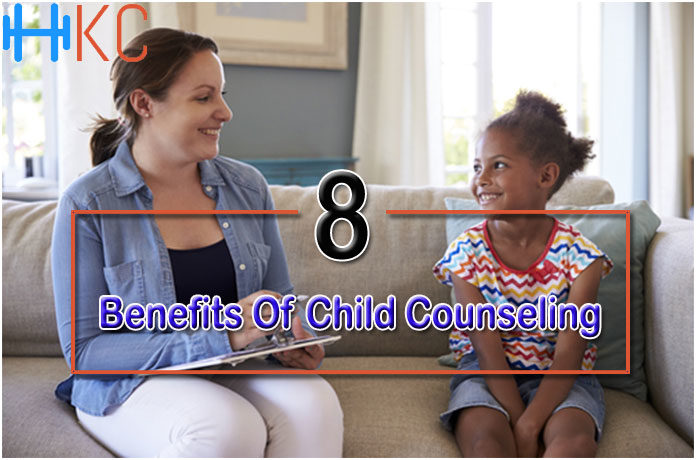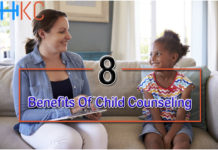We live in an imperfect world where even innocent children aren’t spared from traumatic experiences. The reality is that difficult situations are a part of life and, sometimes, children must deal with negative emotions by behaving in unusual ways to cope and adjust.
However, when debilitating behaviors and attitudes aren’t going away, they may already be signs of more serious issues.
In such cases, it might be time to seek professional help from child counselors and psychologists who are equipped with the necessary skills to guide a child through an ordeal, such as the folks at Western Plains Psychology.
To acquaint yourself with what you can get from bringing your child to such professionals, here are the benefits of child counseling:
1. Get them through difficult times
Children don’t just start to behave differently out of nowhere; there’s usually a trigger of some sort that comes in the form of life events, which can range from unpleasant to downright traumatic. The most common triggers include:
- Parents’ divorce
- Financial problems
- Bullying
- Physical illnesses
- Moving house
- Other family problems
Compared to most adults, children usually need more assistance in articulating their thoughts, feelings, and emotions about such changes. By employing a technique known as play therapy, child counselors can facilitate that process. This technique involves the use of toys and fun activities that engage the child and help them effectively express what’s going on in their mind.
More mature children, those who are 12 years old or above, are more qualified to engage in other techniques such as talk therapy and cognitive-behavioral therapy.
Even if the child isn’t outwardly showing new behavior that would cause you concern, it’s still advisable to have them visit a therapist when they’re going through a difficult time just to check whether they’re doing alright. This preventive measure would help you avoid any problems in the future since you never know if a child is suppressing negative emotions to maintain a semblance of normalcy.
2. Ensure proper development
The power and influence of negative emotions such as anger and guilt only amplify as time goes by, which is why they should be confronted and dealt with as soon as they rear their ugly heads. The urgency of this matter increases the younger a child is because their proper overall development could be at risk.
3. Minimize carrying issues over to adult life
Any problem that isn’t nipped in the bud and is allowed to develop over time will only lead to more drastic consequences that are significantly harder to handle. This principle applies to any mental and emotional challenges that a child may be going through.
Counseling and therapy are the measures you can help your child undertake in order to prevent them from carrying early issues past the threshold of adulthood.
Here are the ways in which those measures can help:
-
Avoiding “victim” thinking
Most people who have suffered from traumatic experiences as children are likely to talk down to themselves by never letting themselves be anyone other than the victims that they once were. By confronting a negative situation as soon as possible, this victim mentality can be prevented. This is why it’s important to remind children who have been in scarring situations that they don’t have to let one horrible experience dictate the rest of their lives. It’s all about giving them back the power and control that was taken from them, and teaching them how they could rebuild their self-esteem.
-
Curbing passive-aggressiveness
An adult who is alarmingly comfortable with ignoring unpleasant situations by resorting to passive aggression is someone who was probably not allowed to express negative emotions as a child. Therefore, if you want a child to grow up to be an emotionally well-functioning adult, then you have to teach them early on that it’s okay to have unpleasant feelings. Indeed, this could be a tricky thing to do, so if you’re unsure of exactly what steps to take, then it’s better to call on a counselor or psychologist who can assist you in this endeavor.
-
Preventing the creation of the “false self”
Those who were neglected by their parents or guardians as children tend to create other versions of themselves that they believe would better satisfy the expectations of those whose approval they seek. Because of this, such people create a false self. In doing so, they bury who they truly are, along with the pain they felt when they were neglected.
With the guidance of qualified counselors, children will have more courage to accept disappointments and to let their authentic selves shine.
Part of making sure that a child grows up to be a holistically healthy adult is providing them with a conducive home environment. If you’re a parent, be ready and willing to accept any necessary changes that you have to make in your home that could come up when you bring your child in for counseling.
4. Teach healthy ways of expressing emotions
When a child is unable to understand what they’re feeling, it follows that they won’t be able to articulate them into words properly. Counseling and therapy would provide a child with a possibly more effective means to show other people what they feel when language fails them.
Play therapy, for instance, is a creative way to get a child to talk about their emotions and troubles instead of resorting to the following maladaptive behaviors:
- Unreasonable tantrums and defiance
- Social withdrawal
- Increased clinginess
- Increased emotional vulnerability

Parents can actually benefit from play therapy, as well. By learning how their children are expressing themselves through play, parents can have a better idea of how to communicate with them in a sensitive and non-confrontational manner.
Teaching a child healthy ways to express emotions will not only correct troubling behaviors and attitudes, but will also help them keep up with other important things going on in their lives.
5. Save school performance
As mentioned, a child who has gone through or is still going through a rough patch is likely to exhibit behavioral changes. More often than not, such changes can be detrimental to a child’s performance in school, among other things.
Letting a counselor talk to a child as soon as you sense that something is wrong will prevent any further damage to their school record by getting them back on their feet as soon as possible.
Keep in mind, however, that troubles in school may be signs of something other than difficulty dealing with challenging situations. They can also signify that a child is suffering from learning disabilities such as:
- Dysgraphia
- Processing deficits
- ADHD
- Dyslexia
- Dyscalculia
Talking to a child counselor or therapist will help you determine whether your child needs help coping with a situation or if they are suffering from a learning disability. Such a professional will also guide you through the entire predicament and will tell you what to do.
6. Address potential mental health issues
Children aren’t as in touch with themselves as adults are, and that is precisely why it’s more difficult for them to recognize when something is mentally or emotionally wrong. For this reason, you should look out for the following signs that may mean that the child is suffering from a mental health condition:
- Mild to severe changes in mood and behavior
- Concentration problems
- Unusual weight gain or loss
Once you notice any of these symptoms, it’s important to handle the situation delicately by calling for the help of an experienced professional. Explain your concerns about the situation to the professional so that they could have a better idea of how to approach the child later on.
Don’t feel bad about handing over the reins to a third party since you could actually worsen matters by confronting the child yourself during a time when they’re still too confused and maybe even scared to face reality.
7. Improve relationships and social skills
Although the doctor or counselor is an important character in a child’s therapy experience, you-their parent or guardian-are still the most relevant person in the entire process because you’ll be the one to spend the most time with the child. That said, a good therapist should help your child improve their relationships with those who matter by teaching them how to communicate their feelings better and how to curb any unhealthy behaviors.
8. Teach them that help is available
Finally, the act of bringing a child to counseling by itself will make them realize that there are people who could help them get through difficult times and deal with negative emotions. This is an important realization for a child to have so that the next time they need it, they’ll know that they can get help.
As a parent or a guardian, you can help your child by letting them know that there’s nothing wrong with asking for help. Make sure, however, that you stay true to those words by being patient and understanding whenever your child opens up to you. Otherwise, they’ll go right back to resorting to unhealthy and suppressive acts.
Once you decide that your child could greatly benefit from counseling, it’s essential that you prepare them for the process by explaining to them what’s going to happen. You can be creative with how you do that, but do ensure that your child doesn’t see therapy as punishment since that could negatively influence the process.
























